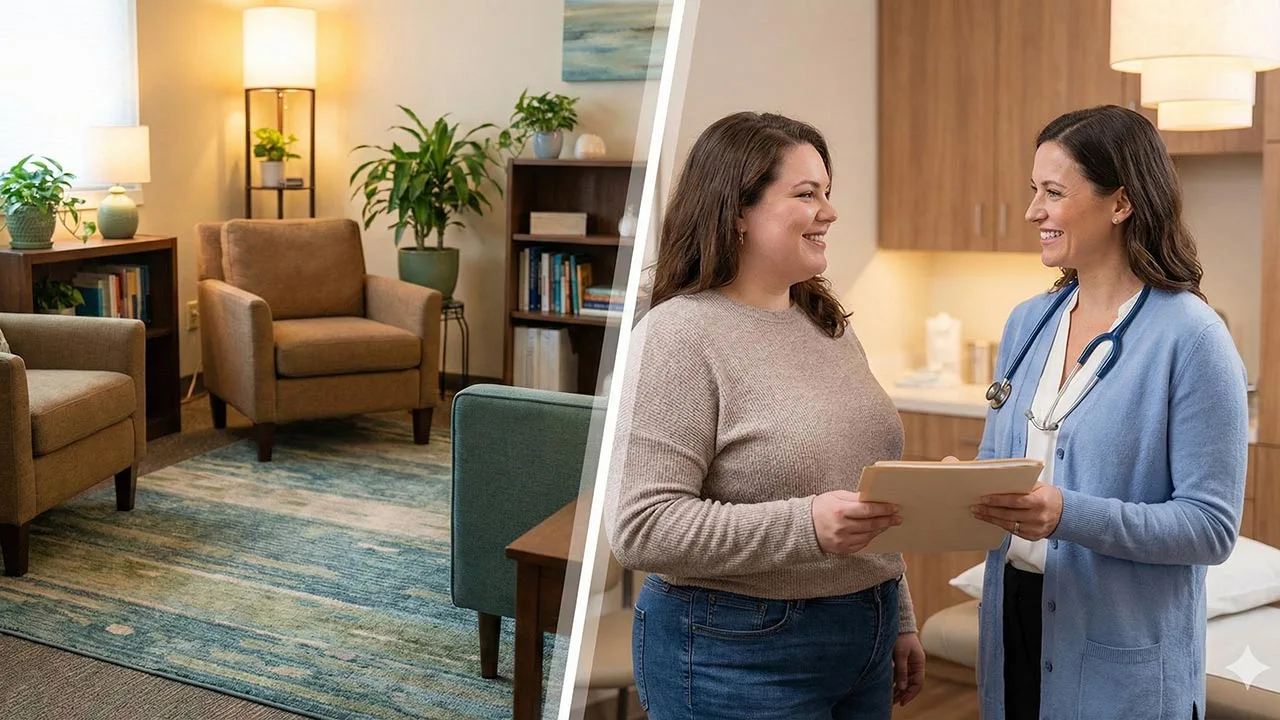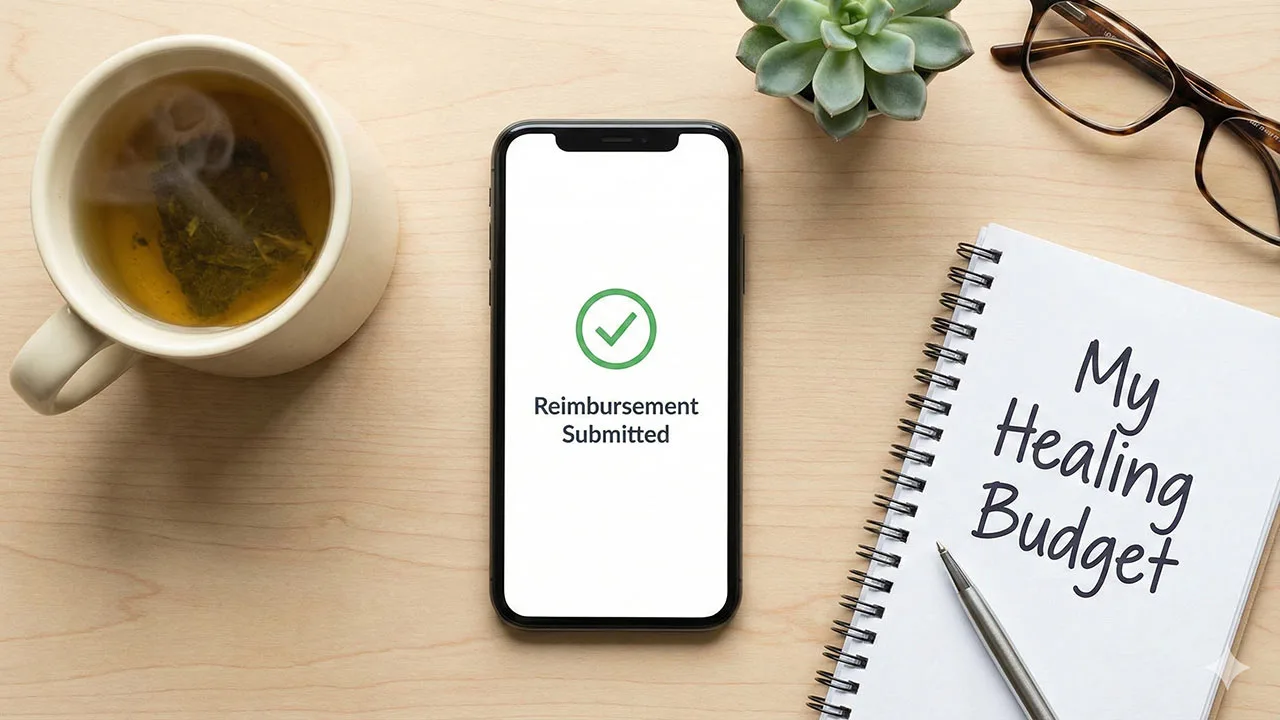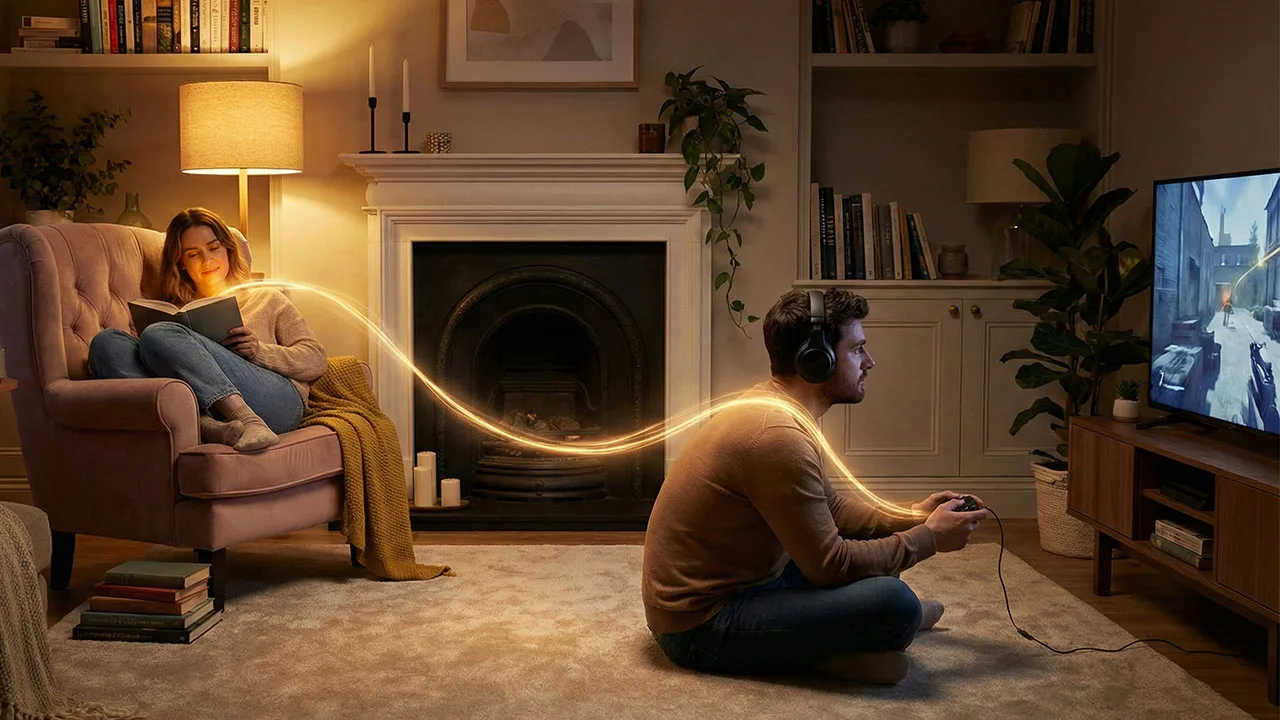Navigating Relationships with Empathy and Inclusion
Neurodivergent couples therapy is a vital but often overlooked aspect of relationship counseling. In a world that celebrates diversity, it’s crucial to recognize that neurodiversity extends beyond our individual experiences and plays a significant role in the dynamics of our relationships.
This guide aims to shed light on the essential concept of neurodivergent couples therapy, emphasizing the profound impact of empathy and inclusion on the well-being of these relationships. Join us on a journey of understanding, support, and growth as we delve into this enlightening topic.
What is Neurodivergent Couples Therapy?
Neurodivergent couples therapy is a specialized form of couples counseling designed to support individuals and couples where one or both partners are neurodivergent. Neurodivergent individuals may include those with autism spectrum disorders, ADHD, anxiety, or other cognitive differences. This therapy focuses on addressing the unique challenges faced by these couples, such as communication difficulties, sensory sensitivities, and social interaction challenges.
The central goal is to help couples understand and navigate these differences, fostering empathy and inclusive communication. Therapists use tailored strategies to improve relationships, ensuring both partners can thrive together in a supportive and understanding environment.
Common Neurodivergences in Couples
Neurodivergent couples may encompass a range of conditions and cognitive differences. Understanding the most prevalent neurodivergence in these relationships is crucial for tailoring effective therapy. Some of the common neurodivergence found in couples include:
- Autism Spectrum Disorders (ASD): Autism is often a primary neurodivergence in couples, and its characteristics can include challenges in social communication, sensory sensitivities, and repetitive behaviors.
- ADHD (Attention Deficit Hyperactivity Disorder): Individuals with ADHD may struggle with focus, impulsivity, and organization, which can impact their relationships.
- Anxiety and Depression: Mood disorders can affect one or both partners, leading to unique dynamics, emotional challenges, and coping strategies within the relationship.
- Dyslexia and Learning Disabilities: Learning differences can lead to communication difficulties and misinterpretations, which can strain relationships.
- Sensory Processing Disorders: Sensory sensitivities can affect how individuals perceive and respond to their environment, impacting their daily interactions.
- Social Anxiety: Intense fear of social situations can affect socializing, planning, and participation in everyday activities.
Challenges Faced by Neurodivergent Couples
Neurodivergent couples often encounter a unique set of challenges that can impact the dynamics and well-being of their relationship. These challenges can include:
- Communication Difficulties: Neurodivergent individuals may struggle with interpreting non-verbal cues, understanding metaphors, or expressing themselves effectively. This can lead to misunderstandings and frustration in the relationship.
- Sensory Sensitivities: Heightened sensory sensitivities can result in discomfort or distress from environmental stimuli, such as noise, light, or textures. This can affect daily routines and even cause sensory overload in social settings.
- Emotional Regulation: Some neurodivergent individuals may struggle to regulate their emotions, leading to emotional outbursts or shutdowns. This can affect the emotional climate within the relationship.
- Social Interaction Challenges: Neurodivergent individuals may struggle with social conventions, such as maintaining eye contact, interpreting social cues, or engaging in small talk. This can make social situations more complex, including interactions with a partner’s family and friends.
- The Impact on Intimacy and Connection: Neurodivergent couples may face hurdles in fostering intimacy and emotional connection. Differences in sensory needs, communication styles, and emotional expression can impact physical and emotional intimacy.
The Role of Empathy and Inclusion
In neurodivergent couples therapy, two fundamental pillars—empathy and inclusion—are the bedrock for fostering understanding and healthy relationships. Let’s explore the pivotal role these elements play in supporting neurodivergent couples on their journey to connection and resilience:
Empathy
Empathy is the ability to understand and share the feelings of another. In the context of neurodivergent couples therapy, empathy is a powerful tool for building trust and mutual respect. It involves putting oneself in the shoes of one’s partner, attempting to comprehend their unique perspective, and validating their experiences. By demonstrating empathy, therapists and partners can:
- Create an atmosphere of emotional safety: When neurodivergent individuals feel understood and accepted, they are more likely to open up and engage in therapy more effectively.
- Encourage open communication: Empathetic listening and responses can ease the fear of judgment, enabling honest and constructive dialogue.
- Improve conflict resolution: Empathetic partners can better navigate conflicts, seeking solutions that cater to each other’s needs and preferences.
Inclusion
Inclusion goes hand in hand with empathy and is centered on recognizing and respecting the diverse needs and preferences of neurodivergent individuals within the relationship. This is especially important because every person’s experience with neurodivergence is unique. Inclusion involves:
- Tailoring therapy approaches: Effective neurodivergent couples therapy recognizes that a one-size-fits-all approach doesn’t work. Therapists adapt techniques and strategies to the specific needs of the individuals involved.
- Acknowledging sensory sensitivities: Inclusive therapy environments consider sensory issues and work to minimize potential triggers, ensuring a comfortable space for neurodivergent individuals.
- Honoring differences: Inclusive therapy promotes the idea that differences in communication, sensory perceptions, and emotional expressions should be celebrated and embraced rather than suppressed.

Strategies for Effective Neurodivergent Couples Therapy
Neurodivergent couples often face unique challenges in their relationships, but with the right strategies, they can overcome these hurdles and build stronger, more resilient partnerships. Here are some effective strategies for neurodivergent couples therapy:
- Tailoring Therapy to Individual Needs: In neurodivergent couples therapy, a one-size-fits-all approach doesn’t work. Effective therapists customize their strategies to accommodate the unique needs of each partner. This might involve adapting communication techniques, intervention methods, and pacing to align with the neurodivergent individuals’ preferences, challenges, and strengths.
- Communication Techniques and Tools: Communication is often challenging in neurodivergent couples. Therapists introduce specific communication techniques, like clear and direct language, visual aids, and social stories, to enhance understanding and reduce misunderstandings. Tools such as communication boards or apps can also aid in smoother interactions.
- Cognitive-Behavioral Strategies: Cognitive-behavioral techniques can help neurodivergent individuals manage anxiety, emotional regulation, and impulse control. By incorporating strategies like mindfulness, cognitive restructuring, and relaxation exercises, therapists assist couples in developing coping mechanisms and emotional resilience.
- Social Skill Development: Social interaction challenges are common for neurodivergent couples. Therapists introduce social skill development exercises to enhance conversational skills, interpret non-verbal cues, and confidently navigate social situations. Role-play scenarios and group therapy settings can provide a safe space for practice.
- Mindfulness and Relaxation Exercises: Mindfulness techniques, such as deep breathing and grounding exercises, can help manage sensory sensitivities and reduce anxiety. Couples learn to use these techniques to promote emotional regulation in individual and shared spaces.
- Scheduled Check-Ins and Planning: Creating structured routines and scheduled check-ins can provide a sense of security and predictability for neurodivergent couples. By developing visual schedules and planning for daily activities, couples can reduce stress and create an environment accommodating their needs.
The Importance of Self-Care for Neurodivergent Couples
Self-care is fundamental to maintaining a healthy and thriving relationship for neurodivergent couples. Neurodiversity brings unique challenges and strengths to a partnership, and prioritizing self-care is essential. It enables each partner to nurture their well-being, reducing stress, avoiding codependency, and fostering independence.
In a neurodivergent relationship, self-care is a means of respecting boundaries and building resilience. It empowers individuals to manage challenges, ultimately contributing to the relationship’s well-being. By taking the time to care for themselves, neurodivergent couples can better navigate the complexities of their relationship, creating a space for understanding, empathy, and growth.
Finding the Right Therapist
Finding a therapist who specializes in neurodivergent couples therapy is a crucial step toward getting the support you need. Here are six essential considerations when searching for the right therapist:
- Expertise in Neurodivergent Couples: Look for a therapist with specific experience and expertise in working with neurodivergent couples. They should understand the nuances of neurodiversity and be well-versed in tailored therapeutic approaches.
- Reputation and Reviews: Research therapists in your area and check for online reviews and recommendations. Hearing about the experiences of other clients can give you valuable insights into a therapist’s approach and effectiveness.
- Credentials and Licensing: Ensure the therapist is licensed and accredited by a recognized professional body, such as the American Psychological Association (APA). Credentials and qualifications indicate a therapist’s commitment to ethical standards and ongoing professional development.
- Compatibility: It’s essential to feel comfortable and connected with your therapist. Schedule an initial consultation to get a sense of their personality and approach. A good therapeutic relationship is built on trust and rapport.
- Communication Style: Neurodivergent couples may have different communication needs. Discuss with the therapist how they plan to adapt their communication style to accommodate both partners. Clear and direct communication is often vital in this context.
- Therapy Modalities: Inquire about the therapeutic modalities the therapist uses. They should be flexible and willing to tailor their approach to the specific needs of your relationship. Modalities like cognitive-behavioral therapy (CBT), social skills training, and relationship-focused interventions can be beneficial.
Neurodivergent couples face unique challenges in their relationships, but with the proper support, understanding, and tailored therapy, they can build stronger, more resilient partnerships. We’ve explored the importance of empathy, inclusion, self-care, and effective therapy strategies. Finding the right therapist specializing in neurodivergent couples is a pivotal step.
If you’re seeking support and guidance for your neurodivergent relationship, we’re here to help. Call us at (828) 515-1246 or scheduling@resilientmindcounseling.com. Our team of experienced therapists is dedicated to assisting you in your path to a healthier, more fulfilling relationship. Don’t hesitate to reach out and take the first step towards a brighter future.














